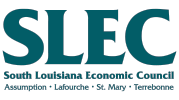Candidates Critical of Federal Regulations
Article written by Emma Discher and courtesy of The Daily Comet. Original posting of article available here.
Four of the top candidates who want to replace David Vitter in the U.S. Senate criticized federal regulations affecting the oil industry during a forum at Nicholls State University Thursday night.
Republican U.S. Rep Charles Boustany, Democratic Public Service Commissioner Foster Campbell, Democratic lawyer and businesswoman Caroline Fayard and Republican State Treasurer John Kennedy were the only candidates invited to the forum out of 24 running for the seat in the Nov. 8 election.
The candidates answered questions from local experts on topics ranging from infrastructure, agriculture and body cameras for law enforcement officers, but oil continued to be brought into the discussion.
Vic Lafont, South Louisiana Economic Council president and CEO, asked what the contenders would do about federal regulations on the oil and gas industry that are “killing Louisiana small business.”
Boustany referred to legislation he worked on that kills the financing for implementation of some regulations and said he supports the REINS Act, or Regulations from the Executive In Need of Scrutiny.
The REINS Act would require that Congress to approve all federal agency regulations with $100 million in annual economic impact, a measure President Barack Obama opposes.
Campbell said Louisiana has a great bargaining position against regulations because it’s the “delivery system” for the oil industry. He also pushed education to help diversify the state’s economy and lessen the impact of the oil downturn.
Fayard said that as a small business owner, she understands how regulations on the oil and gas industry have had “unintended consequences” on other businesses. She said she would review the regulations and overturn the unfavorable ones.
Paul Wilson, associate professor of history at Nicholls State University (center) moderates a U.S. Senate forum Thursday with candidates Charles Boustany (from left), Foster Campbell, Caroline Fayard and John Kennedy. The Thibodaux and Lafourche chambers of commerce and the Nicholls Student Government Association hosted the forum. Abby Tabor/Staff
Kennedy said Obama has declared war on oil and gas, and he blamed these regulations for the state having the third-highest unemployment rate in the country and blasted Congress for inaction. He added he supports swift passage of the REINS Act and sunset provisions on regulations that would expire after three years.
Campbell said the state’s oil exports further support the need for a greater investment in infrastructure and later added that he thinks too many politicians “tap dance” around the oil companies.
All candidates said they support more infrastructure improvements and state management of fisheries.
Fayard and Campbell said they overall support the Affordable Care Act, or Obamacare, whereas Kennedy expressed strong opinions against the health care law and Boustany drew from his experience as a cardiovascular surgeon to speak against it.
Two additional Senate candidates were present at the forum, though they were not invited to participate or allowed to speak during the formal part of the program.
New Orleans-based attorney Derrick Edwards and Pellerin Energy Group CEO JP Pellerin both attended.
Edwards said this was the fourth such event he was not included in. Pellerin commented on the lack of diversity among the candidates who were invited.
Event organizers issued a statement on how the forum candidates were chosen and read part of it at the start of the event.
“The Thibodaux and Lafourche Chambers of Commerce established criteria to select the leading four candidates to be invited to our forum by metrics that consisted of known and public polling information culminating with the Remington Research poll. Candidates who have polled in double digits have been invited. We greatly appreciate all of the candidates desire to make the state of Louisiana and our country a better place, but we also appreciate that it is simply unrealistic to have a meaningful discussion forum with such a great number of candidates. For this reason, we decided to limit the number of participants to four, as selected by the criteria outlined above, and we stand by that decision.”

